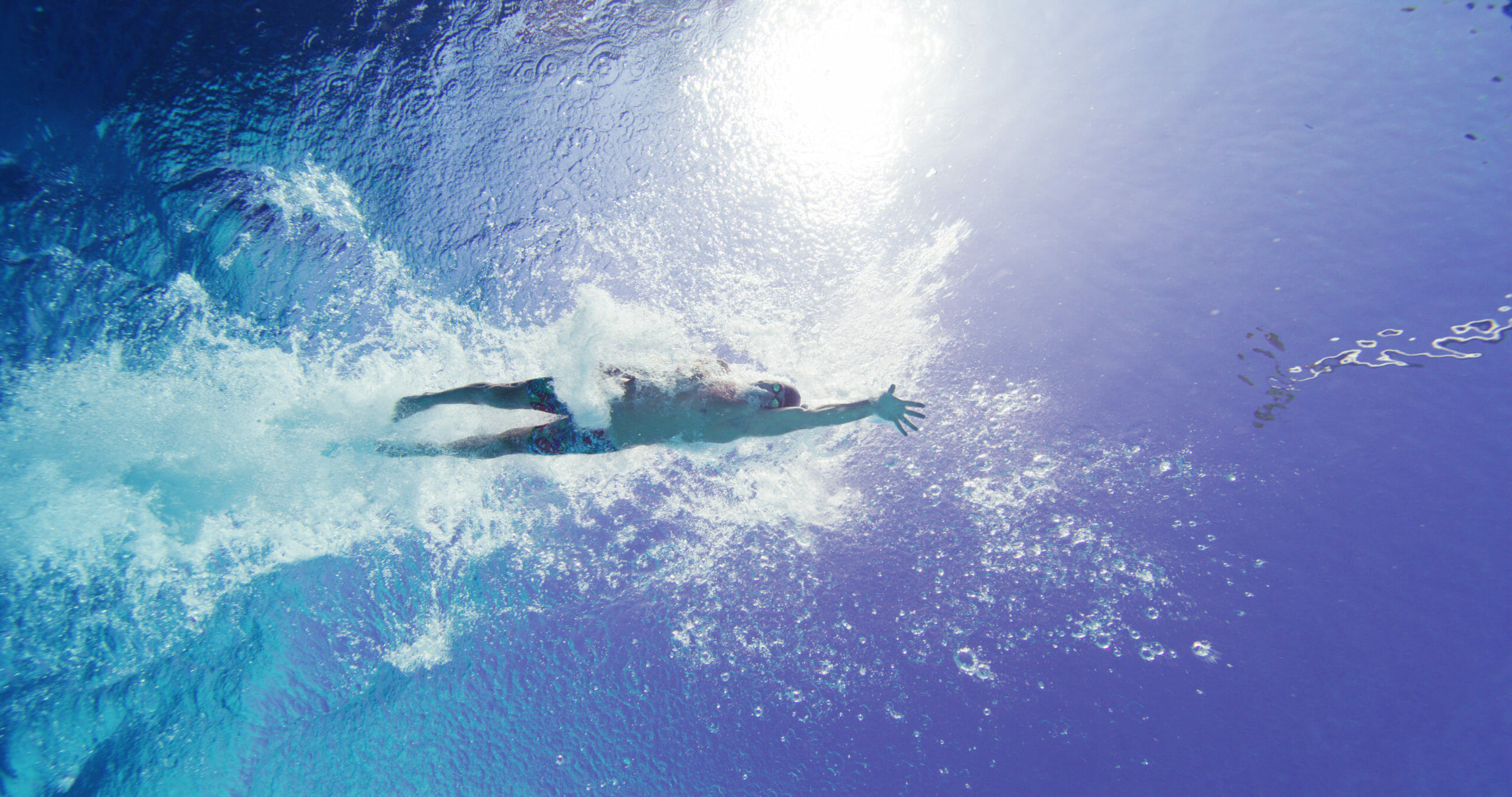Three Common Mistakes in Freestyle Technique
This week, we introduce a series of videos at The Race Club on how we teach a brand-new competitive swimmer to do freestyle correctly and cover three common mistakes in freestyle technique. This swimmer is 38- year- old Marc Clayton. Marc is a natural athlete, having played much soccer in his youth, but now wants to become good at swimming. He wants to compete in Masters competition and do well. Actually, he wants more than to do well. He wants to win.
The question is, can we take a natural athlete who is strong and new to the sport of swimming and turn him into a fast swimmer? Perhaps.
I must admit it is nice to work with natural athletes. They make teaching easier or make teachers look good, no matter what the sport. Marc is no exception. He is also driven to want to succeed. Getting him to swim fast at his age, however, with no background in swimming, is no easy task.
Once we get Marc into the water, we immediately identify three huge mistakes he is making in his freestyle technique that will prevent him from winning at any level:
- Out sweeping on his initial pulling motion
- Overbending his knees on some of his kicks
- Recovering his arms very flat or horizontally over the water.
We also recognize that while Marc is strong, he is not strong in the water. He will need to develop his swimming muscles and learn how to use his body more effectively, or coupling motions, to swim faster. He will need to develop better tools for faster freestyle; more ankle flexibility for a stronger kick and more shoulder flexibility for a better recovery, as well as a good start and turn. We have lots of work to do.
Swimming fast starts with developing good techniques for whatever the distance of the race. In this case, it is a 50-yard freestyle. With Marc, we will take each of his three major technical errors and over the next few weeks, show you how we correct them; one at a time. We will show Marc the exercises that will help give him better tools to swim fast and help prevent injuries. We will try to teach Marc how to do a Brad Tandy start and a Race Club turn. Then, we will show him how to train effectively for a 50-yard freestyle sprint.
In the end, we will see how good of coaches we really are for Marc.
I recall Head Coach at University of Texas, Eddie Reese, once telling me that his best coaching came with a swimmer I had never heard of. He has coached dozens of Olympians. This swimmer never made an Olympic Team, nor even an NCAA finals. Frankly, he wasn’t that talented. Eddie was able to coach him up to making the Texas Conference Semi-finals.
That was the best coaching I ever did.
I believe him. While it is nice to coach Olympians, being a great coach means helping every swimmer rise above their level, whatever that is. It means helping an athlete swim faster than he or she thought possible. Or turning a non-swimmer into a fast swimmer.
Yours in swimming,
Gary Sr.

